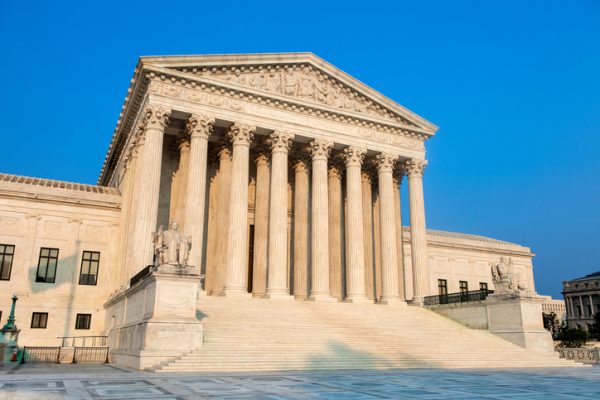
In a case that has “immense economic consequences,” specifically $1.6 billion on the line, the U.S. Supreme Court unanimously ruled Wednesday that the Department of Health and Human Services acted unlawfully by reducing drug reimbursement rates for certain hospital groups without conducting a survey. The case revolves around the 340B drug pricing program.
The 340B federal program includes more than 2,500 hospitals that serve low-income and uninsured patients, and relies on subsidies to cover outpatient drug costs, but the Department of Health and Human Services stopped reimbursing 340B hospitals as much for outpatient drug costs in 2018 and 2019 when the department adjusted their reimbursement rates.
The justices reversed the DC Appellate Court’s ruling on Wednesday when they ruled it was unlawful to adjust the reimbursement rates for hospitals participating in the federal program without first conducting a survey.
“The Department of Health and Human Services can not vary the reimbursement rates for prescription drugs for certain hospitals,” the U.S. Supreme Court ruled Wednesday.
In 2018, HHS relied on an estimate from the Medicare Payment Advisory Commission to set a rate equal to 77.5 percent of the average sales price for each drug for the hospitals participating in the 340B program.
“As a policy matter, HHS said that its existing reimbursement rates resulted in what the agency viewed as overpayments to hospitals that serve low-income or rural populations through the federal 340B program,” Justice Kavanaugh wrote.
But, he continued, federal law requires drug manufacturers to sell prescription drugs at a discounted rate to hospitals participating in the program.
By reducing the reimbursement amount to 340B hospitals, HHS had saved $1.6 billion that was redirected to other aspects of the Medicare program.
As a result of the increased cost of prescriptions, many hospitals had “to eliminate or dramatically curtail other crucial programs that provide a wide range of medical services.” That includes programs to address the needs of the low-income and rural communities such as cancer treatments, opioid addiction treatments and mental health resources.
Historically, HHS set reimbursement rates based on data provided by drug manufacturers of the average sales prices and until 2018, HHS hadn’t offered a different reimbursement rate to non-340B hospital groups.
Without conducting a survey of hospitals’ acquisition costs for outpatient prescription drugs, that was illegal, the Supreme Court ruled.
“This decision is a decisive victory for vulnerable communities and the hospitals on which so many patients depend,” multiple groups said jointly in an emailed statement, including the American Hospital Association and the Association of American Medical Colleges.
“Now that the Supreme Court has ruled, we look forward to working with the Administration and the courts to develop a plan to reimburse 340B hospitals affected by these unlawful cuts while ensuring the remainder of the hospital field is not disadvantaged as they also continue to serve their communities,” the groups said.
Photo: traveler1116, Getty Images















